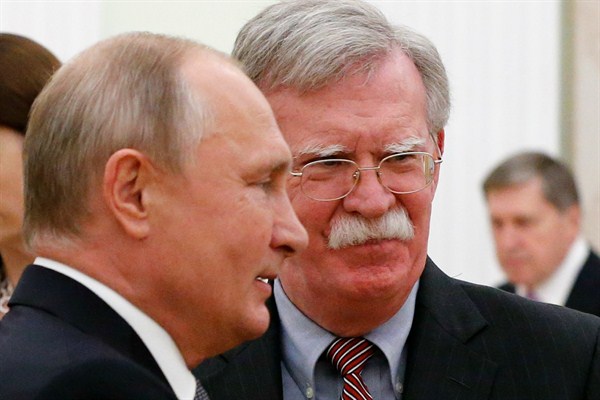U.S. National Security Adviser John Bolton is in Moscow for meetings with senior Russian officials, including President Vladimir Putin, as the U.S. prepares to officially withdraw from a key Cold War-era arms reduction pact.
The Intermediate-Range Nuclear Forces (INF) Treaty, which was signed in 1987 by then-President Ronald Reagan and Soviet leader Mikhail Gorbachev, bans all ground-based ballistic and cruise missiles with a range between 500 and 5,500 kilometers. Washington has repeatedly accused Moscow of violating the treaty for years. That, along with concerns over the rising threat from other U.S. rivals who are not bound by the deal’s terms, particularly China, led Trump to announce on Saturday that he would “terminate” the agreement.
But according to Miles Pomper, a senior fellow with the James Martin Center for Nonproliferation Studies at the Middlebury Institute of International Studies, backing out now only allows Russia to seize the moral high ground despite their many instances of cheating on the deal. “If this treaty were to end, it should have been the Russians who paid the political price, because they’re the ones who’ve been violating it,” he says in an interview. Indeed, ahead of Bolton’s meeting with Putin, Kremlin spokesman Dmitry Peskov rejected U.S. accusations of Russian treaty violations and called Trump’s decision “dangerous.”

